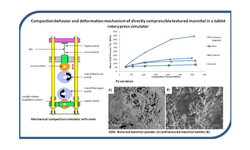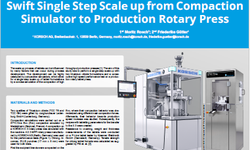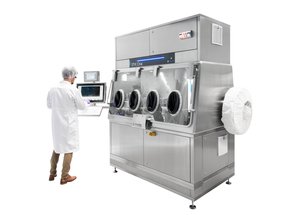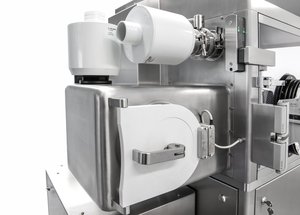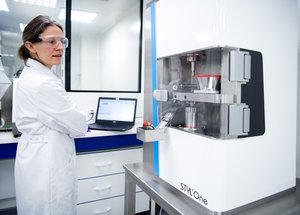Scientific papers
Mini-tablets are gaining significance in the pharmaceutical industry, particularly for special patient groups like pediatrics, as highlighted in various clinical studies and by organizations. These mini-tablets can be produced on tablet presses employing specialized tooling systems. In industrial settings, multi-tip configurations are often utilized to enhance production efficiency. However, the impact of the chosen tooling system on quality attributes has not been fully explored. To address this gap, mini-tablets of 2 and 3 mm sizes were fabricated on a compaction simulator using single-tip, 7-tip, and 19-tip punches, along with industrially relevant excipients. Critical quality attributes such as mass variation and tensile strengths of the mini-tablets were assessed.
Furthermore, the deformation behavior and specific plastic energy (SPE) were analyzed, and tabletability and compactibility plots were generated to assess tableting performance. Despite employing the same filling procedure and filling heights, significant differences in mass were observed with all tooling systems for all excipients. The in-die Heckel plot revealed that using a single-tip resulted in the lowest yield pressures and, in most cases, the highest SPE. While no major differences were noted in tabletability, compactibility was generally enhanced with a 19-tip tooling. However, it's noteworthy that using a 19-tip configuration led to the highest ejection forces and hindered the achievement of targeted tensile strengths in most cases.
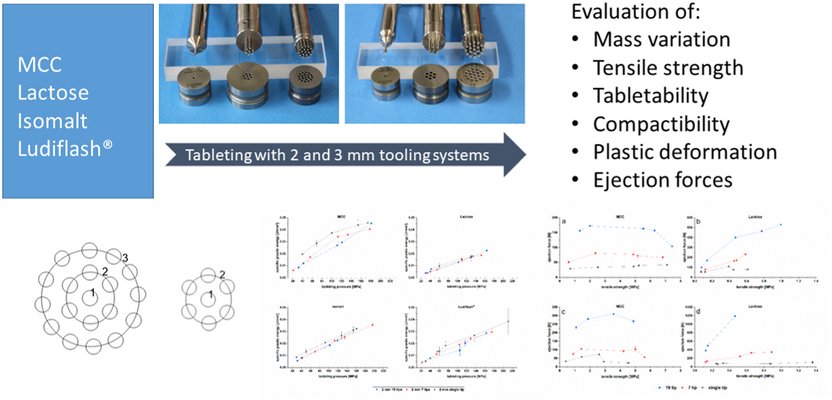
Comments
No comments posted yet.
Add a comment


